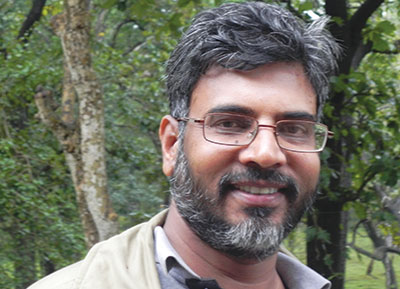 Popularly known as the rte quota, the compulsory admission of children from poor neighbourhood households into private non-minority day schools under s. 12 (1) (c) of the Right of Children to Free and Compulsory Education (RTE) Act, 2009 has always been a sore point in Karnataka. Under this provision, private unaided schools — other than minority and boarding schools exempted by the Supreme Court in Society for Unaided Private Schools of Rajasthan vs. Union of India (2012) — are obliged to reserve 25 percent of seats in class I for children of households in their neighbourhoods earning less than Rs.3.5 lakh per year. Admissions are based on an online lottery system conducted in May every year and the state government reimburses the tuition fees of students thus admitted to the extent of the average expense incurred per student in its own schools, which varies between Rs.8,000-16,000 per year.
Popularly known as the rte quota, the compulsory admission of children from poor neighbourhood households into private non-minority day schools under s. 12 (1) (c) of the Right of Children to Free and Compulsory Education (RTE) Act, 2009 has always been a sore point in Karnataka. Under this provision, private unaided schools — other than minority and boarding schools exempted by the Supreme Court in Society for Unaided Private Schools of Rajasthan vs. Union of India (2012) — are obliged to reserve 25 percent of seats in class I for children of households in their neighbourhoods earning less than Rs.3.5 lakh per year. Admissions are based on an online lottery system conducted in May every year and the state government reimburses the tuition fees of students thus admitted to the extent of the average expense incurred per student in its own schools, which varies between Rs.8,000-16,000 per year.
For the poor, whose only alternative is dysfunctional government schools defined by English aversion, crumbling infrastructure and multi-grade classrooms, RTE quota seats in private schools are like manna from heaven. In the academic year 2017-18, the state government’s education ministry received 228,000 applications for 158,000 seats under the quota.
However, confronted with the problem of a continuous exodus from its malfunctioning government primaries — even poorest households prefer to send their children to low-fees ‘English medium’ private budget schools (many of them illegal) than to free-of-charge English-averse state government schools — the education ministry is set to tweak the rules for admission under s. 12 (1) (c). As per a proposal ready for submission to the Cabinet in November, the department of public instruction (DPI) will allot free-of-charge seats in private schools only after seats in neighbourhood government and aided schools are filled up, a model followed by the neighbouring state of Kerala.
Moreover, the cash-strapped Congress-JD(S) coalition government, which was voted to power in May this year, has reportedly become aware that RTE reimbursements which aggregated Rs.22 crore in 2012-13 for 49,282 children and rose to Rs.226 crore for 414,000 children in 2016-17, are a burden on the exchequer.
However this proposal to deny a large number of under-privileged children free-of-charge entry into English-medium private schools has angered parents and students in poor neighbourhoods of well-furbished private schools which they regarded as the only option for their children to improve their lives. The Karnataka government’s rationale that neighbouring Kerala follows this system has become a subject of debate for social activists in Bangalore who argue that the qualitative difference between government and private schools in Kerala — India’s most literate state and highly ranked on every human development index — is minimal, unlike the situation in Karnataka in which three private co-ed day schools are ranked among the Top 10 in the EducationWorld India School Rankings 2018-19 cf. none in Kerala. However, in the government day schools category, five schools in Kerala are ranked among the Top 10 cf. one in Karnataka.
“Thus far, the state government had abdicated its responsibility of providing good quality education in its own government schools, passing the buck to private schools. People never questioned the government for shrugging off its duty as they always found an alternative in low-cost private budget schools. It’s now time for a mass movement to hold the government accountable. The state must take ownership and ensure its schools comply with the RTE norms in terms of infrastructure, teacher-pupil ratio and learning outcomes, and sharply increase annual budgetary outlays for public schools as the Aam Aadmi Party, which governs Delhi state, has done. A government-appointed committee to strengthen government schools last year has suggested that the state should upgrade one government school in every panchayat to the standard of the Central government’s Kendriya Vidyalayas and christened Gram Panchayat Public School. The state needs to restore people’s confidence in government schools,” says Niranjanaradhya V.P, head of the universalisation of school education programme at Centre for Child and Law in the top-ranked National Law School of India University, Bangalore, who has been championing the cause of government schools for over 25 years.
Quite clearly, radical reform of Karnataka’s dysfunctional government school system is overdue. This cynical ploy of the Congress-JD(S) government to bypass the constitutional amendment of Article 15 (5) which permits the State to compel private schools to admit a small number of children in their neighbourhood — upheld by the Supreme Court — and force them into low grade government schools is certain to invite judicial strictures.
Sruty Susan Ullas (Bangalore)























